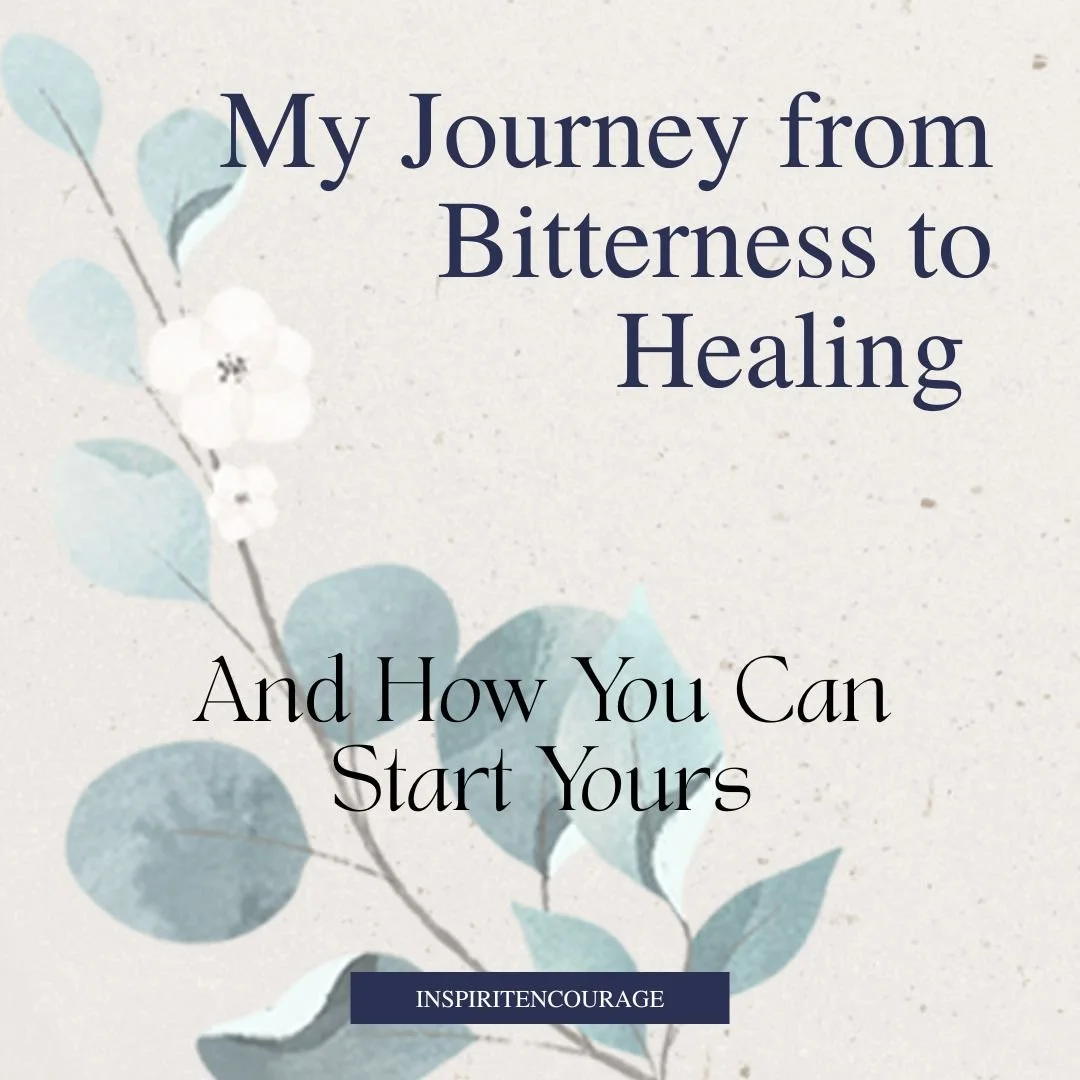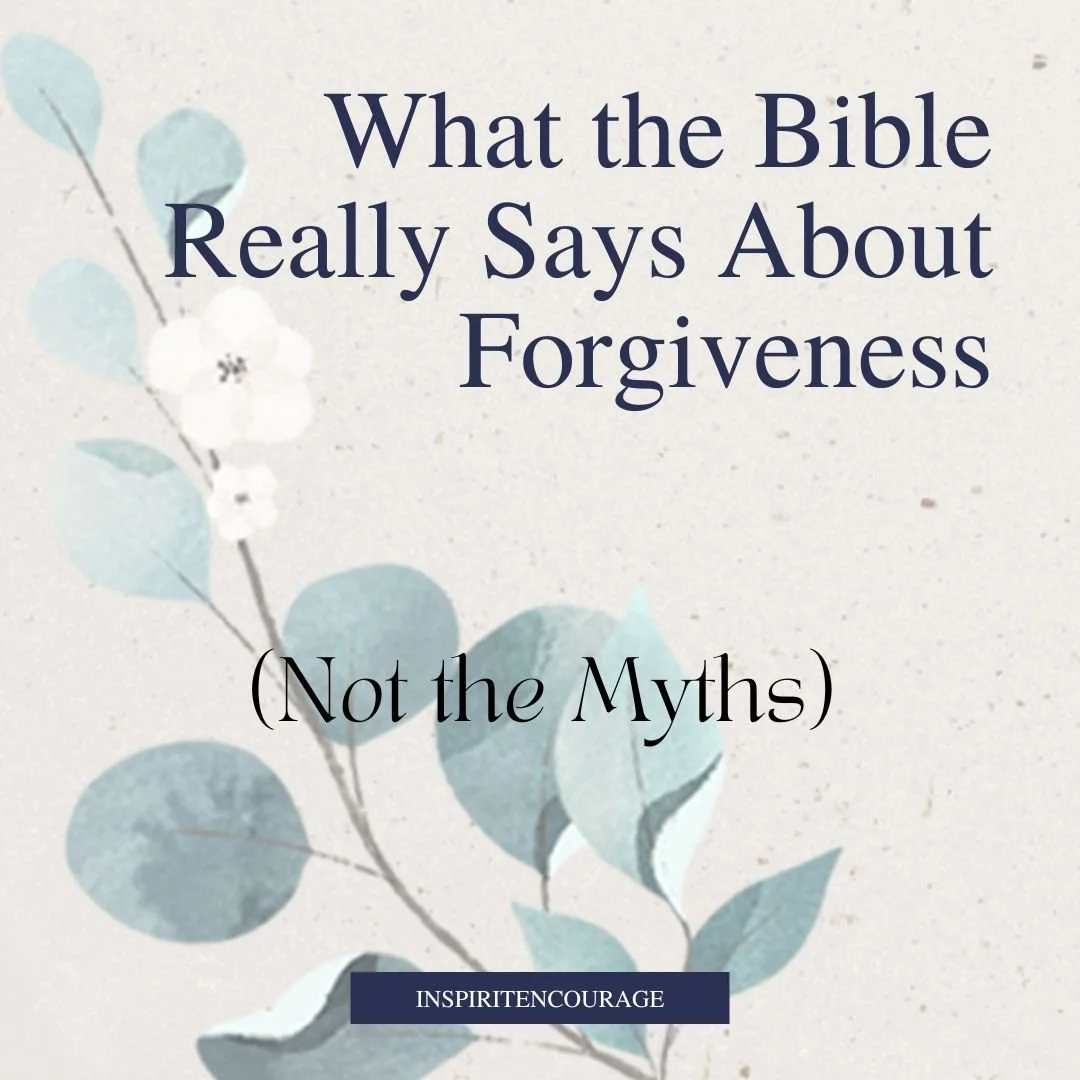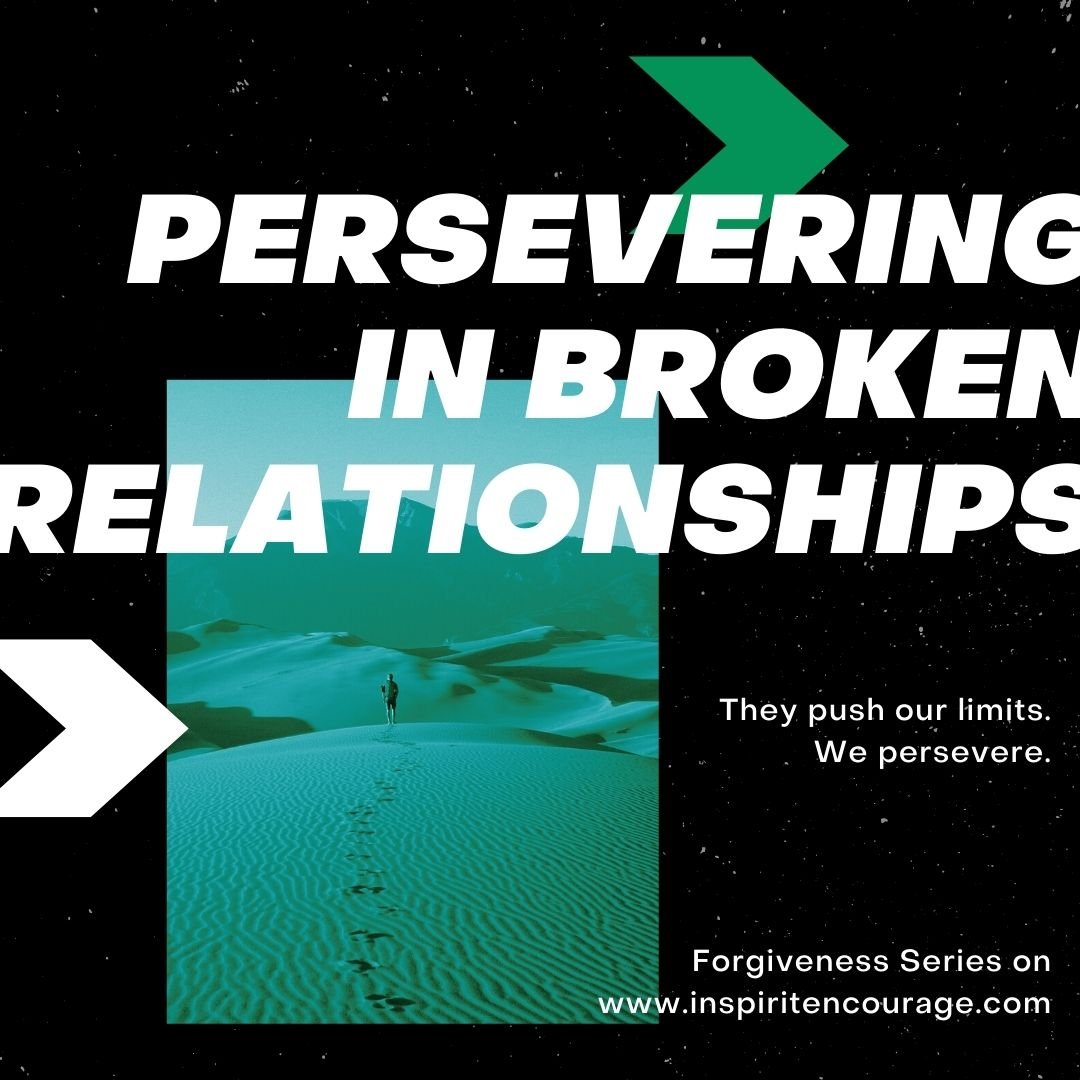
Forgiveness, In Real Life
Honest stories, Scripture, and practices for walking free—with wisdom and boundaries
What’s the difference between forgiving and enabling? Learn how to release the debt to God without collapsing your boundaries, love with the truth, and hold lines that honor safety and change.
Christ didn’t die so you could keep carrying what He already carried. Learn how to live under God’s verdict of no condemnation with honest confession, wise repair, and a gospel script that quiets shame.
You don’t heal on a stopwatch. Forgiveness is a decision you keep walking out while God changes your heart. Here’s why it takes time, what real progress feels like, and a simple weekly rhythm you can start now.
Don’t generalize the wound. Name what was taken, then hand that specific debt to God. This Scripture-shaped exercise gives you scripts, prompts, and a copy-paste journal template—without pretending or rushing your feelings.
When forgiveness feels stuck, try naming what was actually taken. One honest line in a journal, then placing the debt in God’s hands, can open space for peace and wise boundaries.
If you’re wondering, “Have I actually forgiven?”, you’re not alone. This guide shows honest, Scripture-shaped signs of forgiveness, why feelings lag behind faith, and a gentle practice you can try this week.
Tidy clichés keep us stuck. This post cuts through seven common myths about forgiveness with Scripture—and shows a practical way forward that names the debt, releases it to God, and walks in freedom.
Bitterness felt like armor—until it started choking my joy. This honest story walks through naming what was taken, releasing the debt to Jesus, and taking a simple first step you can try tonight.
Yes—you can forgive even if the relationship doesn’t come back. Scripture centers reconciliation to God; from that grace you can release the debt, hold wise boundaries, and accept that some doors may stay closed.
We toss “forgiveness” around like it’s a switch. Scripture says otherwise. This post cuts through myths and shows a practical, biblical path to release the debt, keep wise boundaries, and find peace.
Forgiveness doesn’t just release the person who hurt you—it releases you. This article explores why forgiveness is a path to freedom and peace, rooted in God’s truth.
Forgiveness doesn’t mean forgetting—or pretending it didn’t hurt. If you’ve been wounded deeply, this article explores a faith-based path to real healing and freedom through Christ.
If you reconcile, it is wise to guard yourself. It is important to take the relationship through a process of building trust to restore the relationship, just as Joseph did with his brothers. It is important to consider boundaries or ways to protect ourselves when we continue with the relationships.
Forgiveness is something that is between you and God, the offender has nothing to do with it. If the conversation calls for it, the person asks forgiveness or seeks to mend the relationship, it might be the right time to say that you have forgiven or do forgive someone.
It comes down to reconciliation as a choice, not a must. It would seem to be easier to reconcile if the person is repentant. But in all honesty, it is not always as easy as a ‘choice’.
TRUTH: Forgiveness is a free gift that helps me heal, and actually does nothing for the offender.
Forgiveness is not a miracle; it miraculously works in us. But the decision to forgive does not immediately alter everything.
With forgiveness, we do not forget, but the memories no longer trigger pain and no longer control our actions. With forgiveness, we are cut free from the pain.
Whatever the person did, big or small, it is NOT okay that they did it. It might be that everything is okay between him/her and me, but that does not make what they did ok. So, let’s stop saying ‘it’s ok’ in response to an apology or request for forgiveness. How do we respond to ‘I’m sorry’, then? Here’s how to open the conversation
It is a common thing to hear, or think, ‘She deserves punishment, so I’m not going to forgive until she has paid.’ With forgiveness, God steps in to hold the hook on the offender.
Alive Again is coming soon! I wanted to give you some information about the book and invite you to join the Advance Reader-Reviewer Group.
It is our choice to give up the hard knots of pain and anger and fear. God is big enough and strong enough to not only carry all of these things for us, but He is also more than sufficient to address these issues and release us from them. Forgiveness is an incredible trait of God, freeing us for an abundant life.
When we walk in these broken relationships in a broken world, these can be the words that lend us hope. How do I go on when he or she won’t change? How do I go on when they won’t repent?
Reconciliation is possible, with time and patience. We are fallible humans who need grace in relationships. How can I protect myself when I reconcile with someone?
There is an ache in the lack of reconciliation, because we were made to love. We were made for fellowship. I don’t think I can reconcile, do I have to? What does the Bible say about reconciliation?
This is the life of a Christian. Forgiveness is just part of it. A hard part, but the person we are becoming is worth it. How can I forgive myself for what I have done? Following a model in the Bible for forgiving ourselves.
Regret is a wakeup call to take it to God, accept forgiveness and consequences, then worship and go forth with a change of heart.
In time, God has taken those feelings inflicted by others and erased them. Forgiveness led to changes in me: in my relationships, in my responses to slights. Forgiving past hurts will free us for a better present, an abundant life.
We struggle to believe that God will act and act swiftly because we are surrounded by a world that seems to thrive on evil, and no punishment is in sight. So, how do I overcome the desire for revenge? What the Bible says about revenge.






























Forgive without becoming a doormat. Learn the difference between release and access, what real repentance looks like, and how Paul handled Alexander—with clarity, boundaries, and hope.